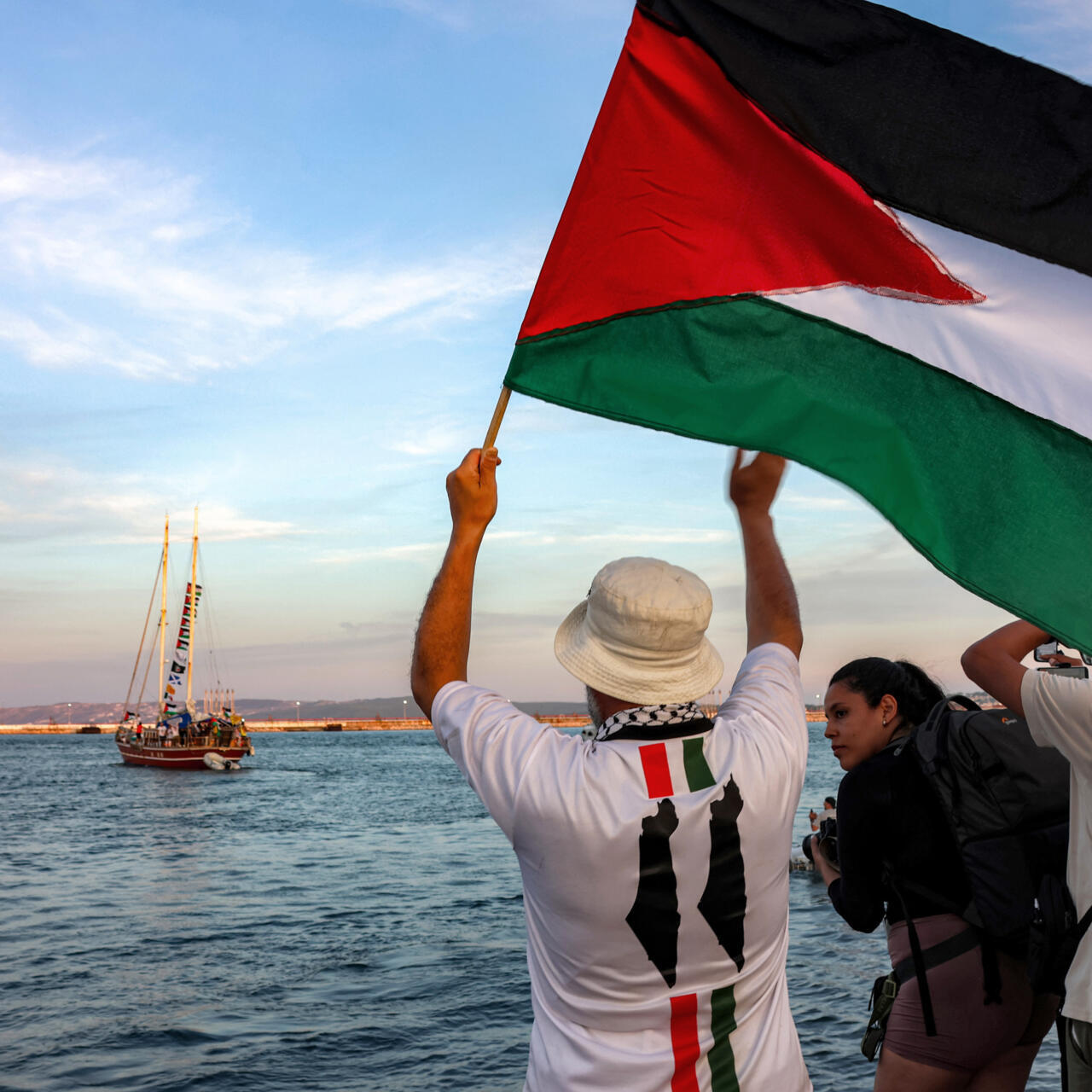Global Sumud Flotilla Update: Latest Developments & Analysis
The Global Sumud Flotilla (GSF) is among the most watched maritime humanitarian operations underway in 2025. By sea and by message, it aims to challenge the Gaza blockade, deliver aid, and mobilize international solidarity. This article presents the latest from the flotilla — its progress, confrontations, legal arguments, and what may lie ahead.
Origins, Vision & Motivations
The word Sumud (steadfastness) carries deep resonance in Palestinian resistance rhetoric. Organizers framed this flotilla as not solely about supplies but about persistence, visibility, and moral pressure.
The mission began in Mediterranean ports — Spain, Italy, Tunisia among them — with dozens of vessels, activists, humanitarian workers, parliamentarians, and symbolic cargo. The strategy is deliberately hybrid: small-scale aid, high-profile presence, and narrative amplification.
Supporters say even if aid doesn’t arrive, the flotilla’s value lies in spotlighting Gaza’s blockade, forcing accountability, and compelling diplomatic engagement. Critics argue the risk is too high or that the mission is symbolic at best.
Route & Current Position
As of early October 2025, a subset of the flotilla remains in international waters, some approaching Gaza’s buffer zones. Others have already been intercepted or redirected.
Vessels follow carefully drawn paths — avoiding unauthorized entry into territorial seas until forced confrontation. The flotilla also uses real-time tracking and coordinated shift planning to manage risk and respond to obstacles.

Incidents, Interceptions & Confrontations
Several flotilla vessels report having been intercepted. One prominent case was the ship Marinette, boarded and detained before it could reach contested waters.
Activists aboard describe drone overflights, small explosions, jamming of communication systems, and harassment tactics. In multiple accounts, unidentified drones dropped munitions or devices near vessels, aiming to intimidate or disable.

In September 2025, the flotilla itself claimed that at least 13 explosions were heard across 10 of its boats, with drones dropping objects on them and communications being jammed. One activist said their radio channel was hijacked by jamming noise or messages, making coordination harder.
Some vessels were approached by warships with disabled transponders, ordered to stop engines, or warned of boarding. In many cases, the flotilla complied temporarily to avoid escalation, then resumed after de-escalation talks.
Escorts, Support & International Responses
In response to hazards, several nations dispatched naval or coast guard ships to shadow or escort sections of the flotilla. Italy and Spain have been among the more visible.
These countries frame their role as ensuring safety or monitoring adherence to maritime law, rather than direct intervention. But their presence inevitably adds a layer of diplomatic signaling.
Some governments have criticized the flotilla as provocative or unsafe; others have voiced support or urged restraint from all sides. International NGOs, human rights bodies, and UN agencies have been monitoring closely.
Voices from the Fleet
Activists aboard livestream, record testimonies, issue press statements, and engage social media in real time. Many emphasize the mission’s human narrative: women, children, medical personnel, journalists.
Notable figures have been reported onboard (though their presence may vary). The goal is less “celebrity activism” and more amplifying Gaza’s voice.
Tensions aboard rise in confrontation zones. Crew talk of emotional solidarity nights, chants, prayers, and last-minute tactical shifts. They also speak of fear, uncertainty, equipment failure, and decisions under duress.

Legal & Ethical Battles
Maritime Law & Blockade Legitimacy
Under the United Nations Convention on the Law of the Sea (UNCLOS), states have limited jurisdiction beyond 12 nautical miles. But wartime or blockade regimes complicate that.
Israel maintains it has a lawful naval blockade of Gaza for security reasons. Flotilla organizers argue the blockade is unlawful insofar as it restricts essential goods and violates humanitarian norms.
The legal gray zone: boarding, search, seizure within blockade zones may be lawful if done with warnings and minimal force. But denying entry or intercepting humanitarian vessels under all circumstances is contested.
Ethics of Sea-Based Civil Disobedience
Sailing into contested waters is a deliberate defiance—akin to land protests but riskier. The flotilla is a vessel of nonviolent resistance, but the possibility of force is ever present.
Ethical critiques center on risk management (are participants safe?), coercion (could escalation provoke violence?), consent (crew consent to risks), and symbolism vs outcome. Proponents argue bold action is necessary to break silence and impunity.
Challenges, Constraints & Failures
Technical & logistical issues: mechanical failure, fuel shortages, communication breakdowns, navigation errors.
Weather & sea conditions: storms, waves, visibility issues force rerouting or delays.
Interceptions & detentions: once intercepted, boats may be towed, boarded, confiscated, or imprisoned. Cargo may be diverted.
Legal retaliation: detention, fines, legal proceedings, criminal charges, vessel seizure by states.
Media suppression & jamming: communication blackouts, satellite jamming, internet blockades. Some crews report their live streams cut off during crucial moments.
Diplomatic pressure: pressure on host ports to refuse docking, denial of airspace, political coercion to abandon mission.
Outcomes & Future Trajectories
Several flotilla vessels have been turned back or intercepted without reaching Gaza. Some live to fight another day; some are impounded or held.
The mission’s success may not lie only in delivery but in amplification—court filings, media pressure, court of public opinion. Organizers plan follow-up waves, smaller satellites missions, and allied actions on land.
A key question: will this flotilla shift policy, open sea access, or drive diplomatic breakthroughs? Partial success is plausible: release of detained activists, international investigations, or new entry channels. Full passage remains uncertain.
Whatever happens, the Global Sumud Flotilla has already altered the narrative: Gaza’s maritime siege is now a contested battleground not just in conflict terms but in law, story, and legitimacy.